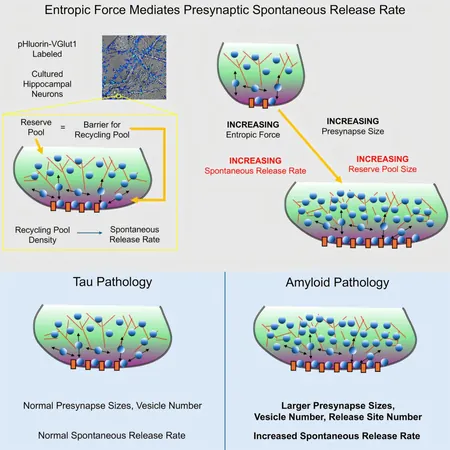
Unlocking the Future of Medicine: How AI is Set to Transform Disease Treatment!
2025-03-28
Author: Rajesh
Unlocking the Future of Medicine: How AI is Set to Transform Disease Treatment!
Artificial Intelligence (AI) is not just a buzzword; it is rapidly transforming the landscape of medicine, ushering in what could easily become a golden age of drug discovery and disease treatment. One of the most groundbreaking breakthroughs in this field is AlphaFold, developed by Google DeepMind. Since its launch in 2020, this remarkable technology uses AI to accurately predict the three-dimensional structures of proteins, a task that has historically taken scientists years to accomplish using conventional methods.
Understanding a protein’s structure is crucial, as it reveals essential insights into its function and facilitates the design of new drugs. AlphaFold has drastically changed the pace of research; instead of the laborious traditional process that involved growing large amounts of protein, crystallizing it, and employing X-ray crystallography—an endeavor that might take years—scientists can now get structural predictions in a matter of minutes. This not only saves time but also significantly reduces costs.
AlphaFold's performance has been nothing short of sensational. When it first participated in a protein structure-solving competition, experts were so impressed that many thought the AlphaFold team had found a way to cheat. Before this innovation, only a select few scientists had the expertise necessary for X-ray crystallography; now, with about 250 million protein structures available in the AlphaFold database, nearly two million researchers from 190 countries have access to its capabilities.
For instance, Dr. Pauline Lascaux, a molecular biologist at the University of Oxford, credited AlphaFold with helping her uncover a novel mechanism of DNA repair in cells. Moreover, she noted that over 90% of the studies she reviews reference AlphaFold, highlighting its growing influence across multiple research domains.
In an intriguing application of AlphaFold, researchers have successfully predicted the structure of the serotonin receptor, a critical protein involved in regulating mood. Through extensive computational testing, involving a staggering 1.6 billion different molecules, they identified potent candidates that may hold promise for treating mood disorders, potentially surpassing the efficacy of drugs developed through traditional experimental methods.
AlphaFold is not just creating waves in academic laboratories; it's spawning businesses that leverage its power. For example, AlphaProteo is an emerging company that utilizes AlphaFold's predictions to invent new molecules aimed at targeting various ailments, including COVID-19, cancers, and autoimmune diseases.
Additionally, efforts like AlphaMissense are tackling the challenge of missense mutations—small genetic alterations where the impact on the organism's health is often unknown. By analyzing the protein structures implicated in these mutations, researchers can gain insights that may lead to new diagnostic and therapeutic strategies for rare genetic disorders.
Although drugs derived from AlphaFold have yet to be tested in human trials, the potential remains vast. The innovative tool could lead to individualized medicine discoveries, help target previously “undruggable” proteins, and illuminate the intricate workings of molecular biology. Just recently, AlphaFold played a crucial role in elucidating the structure of the sperm-egg bridge, a pivotal process in fertilization.
We are entering a new era of medicine—one defined by the AI generation. The initial wave of drug discovery brought aspirin from willow tree bark, followed by the biotech advancements that yielded treatments like Ozempic. With AI, who knows what revolutionary discoveries are just around the corner? Get ready; the future of medicine is about to get a significant upgrade!


 Brasil (PT)
Brasil (PT)
 Canada (EN)
Canada (EN)
 Chile (ES)
Chile (ES)
 Česko (CS)
Česko (CS)
 대한민국 (KO)
대한민국 (KO)
 España (ES)
España (ES)
 France (FR)
France (FR)
 Hong Kong (EN)
Hong Kong (EN)
 Italia (IT)
Italia (IT)
 日本 (JA)
日本 (JA)
 Magyarország (HU)
Magyarország (HU)
 Norge (NO)
Norge (NO)
 Polska (PL)
Polska (PL)
 Schweiz (DE)
Schweiz (DE)
 Singapore (EN)
Singapore (EN)
 Sverige (SV)
Sverige (SV)
 Suomi (FI)
Suomi (FI)
 Türkiye (TR)
Türkiye (TR)
 الإمارات العربية المتحدة (AR)
الإمارات العربية المتحدة (AR)